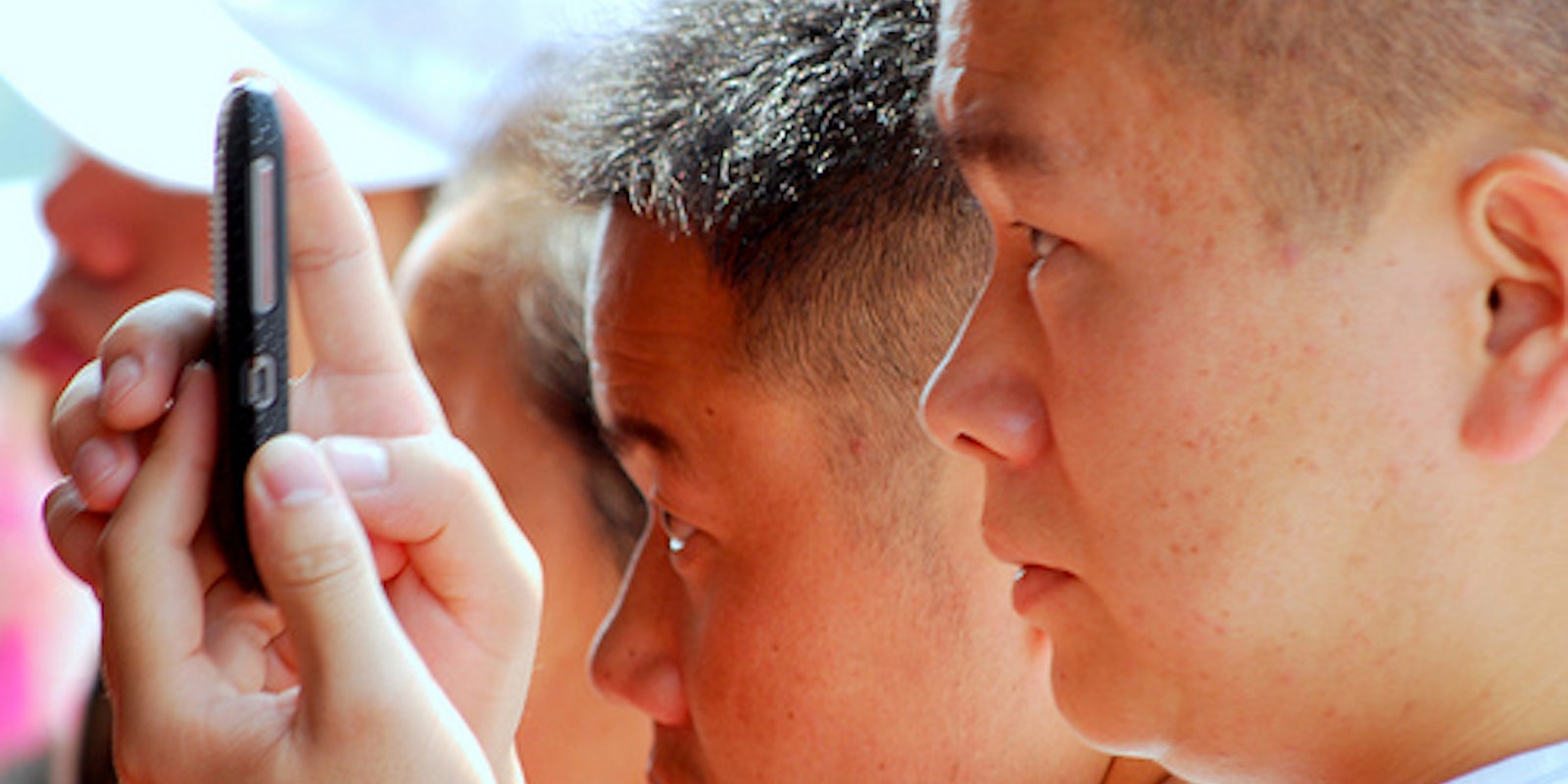The world’s largest messaging app is WeChat. Because it is made by China’s largest Web company, Tencent, it obeys Chinese government rules on forbidden words and phrases, such as “falun gong.”
All Chinese Web properties do this, of course, one of the most prominent being the extremely popular Chinese microblogging service, Sina Weibo.
The unexpected aspect of this story, however, is that, as Tech in Asia has demonstrated, it censors those words throughout its international network.
The service has over 300 million registered users, primarily in China, but also in Singapore, Malaysia, Thailand, Vietnam, the United States and Arabic countries. Its growth rate is tremendous, having added over 100 million users in the last quarter of 2012 alone.
Additionally, Tech in Asia has discovered that Tencent is updating the list of terms it censors, including “Southern Weekend,” the name of an outspoken newspaper in the southern city of Guangzhou, which is kicking against Chinese government censorship.
Tech in Asia tested the service with the Chinese term for Southern Weekend (“nan fang zhou mo”).
“We’ve tested it out going from users in China to Thailand (blocked), Thailand to China (blocked), and even Thailand to Singapore (blocked); the prohibited words are not sent at all. The name of the magazine can be sent in English.”
Censoring terms international users are accustomed to employing without a second thought could serve as a stumbling block for further expansion. That news events, like the struggle between Southern Weekend and Beijing, are also being censored on an ongoing basis, further limits WeChat’s appeal.
TechPresident further reports that, “many Chinese dissidents believe that the company gives the police access to private conversations and GPS movement,” for a trifecta of censorship that may prove insurmountable to further foreign adoption.
Photo by Michael Davis Burchat/Flickr
